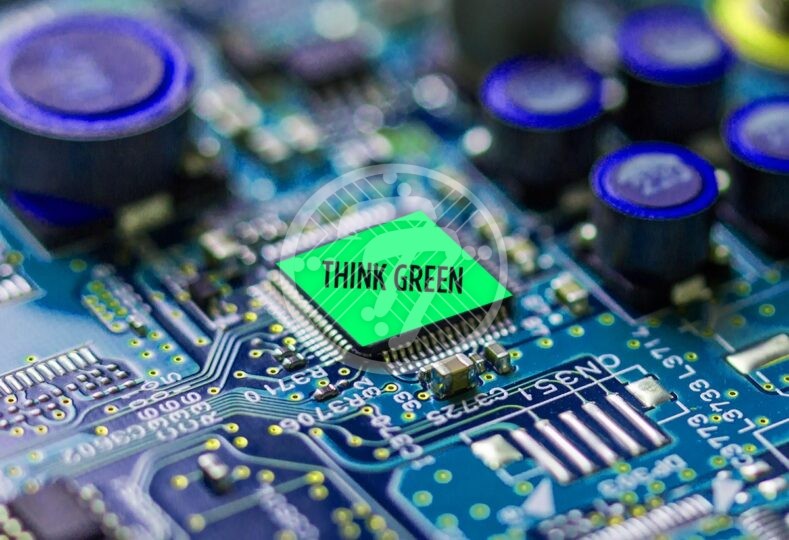Does Biodegradable PCB can really reduce E-Waste Problem?

PCBs are an integral component of every electronic gadget. With the increased use of electronic gadgets in various aspects of our life and also on account of their reduced life span, the one thing that is on an increase is the amount of electronic waste. With new industries such as Internet of Things and advanced driver assistance in cars burgeoning, the growth is only likely to be accelerated.
Why PCB waste is a real problem?
While PCBs are designed to last for many years, the fact is that gadgets in which these PCBs find pride of place, are being replaced at alarming frequency. A key issue that therefore arises is that of decomposition, leading to a host of environmental issues. With a high percentage of the discarded electronics going to landfills especially in the developed countries, they release toxic substances into the environment such as:
- Mercury – That can cause kidney and brain damage.
- Cadmium – That is known to cause cancer.
- Lead – It is known to leads to brain damage
- Brominated Flame Retardants (BFRs) – These are known to affect hormonal functions in women.
- Beryllium – Is known to cause cancer
Even if the board is recycled instead of being thrown in a landfill, the recycling process is hazardous and can lead to health hazards. The added problem is that with our devices getting smaller and lighter, taking them apart to salvage recyclable components, is a huge exercise. All the glues, adhesives used need to be removed manually before any recyclable material can be withdrawn. The process therefore is extremely labour intensive. Typically what this means is that PCB boards are shipped to less developed countries where labour costs are lower. The answer to both these problems- electronics landing up in landfills or the issue of them being recycled- clearly is biodegradable PCBs which can go a long way in reducing e-waste. TechnoTronix is the leading name in providing renewable energy PCB prototype.
Replacing current, toxic materials with transient metals such as tungsten or zinc is a big step forward in this direction. A group of scientists at the University of Illinois Urbana-campaign Frederick Seitz Materials Research Laboratory have set out to create a fully functional PCB that disintegrates when exposed to water. The PCB is made out of the following:
- Commercial Off-the-Shelf Components
- Magnesium Paste
- Tungsten paste
- Sodium Carboxymethylcellulose (Na-CMC) Substrates
- Polyethylene Oxide (PEO) Bonding Layer
In fact, completely bio degradable PCBs have been developed using bio-composites made from natural cellulose fibers extracted from banana stems and wheat gluten. The bio-composites are free of chemicals. These biodegradable transient PCBs have performance similar to conventional PCBs. Partially bio degradable PCBs have also been developed using chicken feathers and e glass fibers.
Biopolymers such as carbohydrates and proteins are bio-degradable but they need natural resources such as land and water which are becoming scarce. Renewable and sustainable biopolymers can also be obtained from agricultural wastes such as banana fibers, which are extracted from the stem of the plant. These agricultural co products can be used to develop completely biodegradable composites.
Are Environmentally friendly Printed circuit boards reliable?
Often times the words environment friendly conjures up images of a product that is fragile, which is not a property we would want to associate PCBs with. Some of the fears that we associate green PCB boards include:
- Mechanical Properties- The fact that the environment friendly boards are made of banana fibers makes us assume that the boards could be as weak as a leaf. The fact however is that researchers are combining substrate materials to create boards that are comparable in strength to conventional boards.
- Thermal Properties- PCBs need to perform highly on thermal performance and not catch fire easily. Biomaterials are known to have low temperature thresholds so in some sense this fear is well founded. However, low temperature solders help to circumvent this issue.
- Dielectric constants- This is one area where bio degradable boards perform at the same level as traditional boards. The dielectric constants achieved with these boards are well within the required range.
- Performance in extreme conditions- No deviation in output has been observed in case of the bio-composite PCB on exposure to high humidity or temperature.
- Heat dissipation- Bio-composites are able to dissipate a significant amount of heat which is a desirable property for a PCB.
As the use of electronics becomes more widespread E-waste will continue to grow to alarming proportions. The good news however is that as research into environmentally friendly options further progresses, green boards will be a commercial reality, thereby reducing e wastes and the problem of electronics recycling. While we are contending with the e-wastes of the past as well as current electronic devices, it is time for us to look towards the future and ensure the widespread use of biodegradable PCBs.
With having a combined extensive year of experience in PCB fabrication, PCB prototyping, PCB assembling and PCB rework, TechnoTronix has created a strong customer base for varied industries to shape up new trends for PCB manufacturing across the globe. Drop an email to [email protected] to get proper consultation or share your requirements to get a perfect PCB with a cost-effective strategy, or give a call 714/630-9200!






